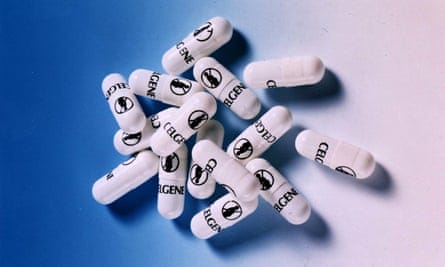As more and more people today rely on medicines to ease pain and suffering, it's easy to overlook the dark history that lies beneath the surface of the companies they trust. In this article, I’m going to shine a light on one such company: Bayer, whose past history and modern conduct is marred by a dark and disturbing pattern that demands acknowledgment.
Founded in 1863 by Friedrich Bayer and his partner Johann Frohwirth, the company started as a small dye factory but quickly expanded to produce a range of chemicals. When Adolf Hitler and the Nazi Party came to power in 1933, Bayer saw an opportunity to profit from the regime's policies. Merging with IG Farben, the company donated 400,000 marks to Hitler and his Nazi party—an action amply rewarded. IG Farben became the single largest profiteer of German conquests in World War II.
The company employed thousands of forced laborers in deplorable conditions, and was involved in unethical medical experiments on concentration camp prisoners that often resulting in death or severe harm to the victims.
But the mass production and deliberate supply of Zyklon B, a chemical used in the gas chambers of Auschwitz and other concentration camps, constitutes one of the most heinous and inhumane acts in human history, leaving an indelible stain on humanity's conscience.

Holocaust survivor Eva Mozes Kor’s 1999 lawsuit documents suggested Bayer was involved in human experimentation. The lawsuit accused Bayer of paying Nazi officials for access to prisoners to test its drugs.
After World War II, the company’s complicity in the Holocaust was largely ignored or downplayed. Shockingly, by 1952 the new West German government of Konrad Adenauer had amnestied and released the last company executives imprisoned for their war crimes.
Now the guilty perpetrators were back in leading positions in the company. Fritz ter Meer, a managing board member at IG Farben from start to finish, and as wartime manager responsible for IG Auschwitz, was reinstated as a managing board member of Bayer a few years after his release.
All three sibling firms BASF, Bayer and Hoechst (which later became Aventis) soon filled their highest positions with former Nazis, with each growing to become 20 times bigger than IG Farben as a whole at its height in 1944.
Far from being contrite, the company was now being steered towards a future even more devastating than its dark past.
Bayer In Modern Times
Bayer AG's disturbing past serves as a stark reminder that the destructive tendencies of humanity persist. The horrors of the past, far from being isolated incidents, provide a blueprint for further tragedies through time to today.
After WW2, their drug thalidomide (also known as Contergan), showed growing evidence of severe birth defects in babies born to mothers who took it. It continued to be sold in 46 countries until 1959. Tragically, it was marketed as "completely safe" for pregnant and breastfeeding women. As a result, up to 10,000 children suffered devastating deformities. The trial for the scandal ended up being squashed, but the stink of the Nazi party continued.
But while officially attributed to the German firm Chemie Grunenthal in the early 1950s, Dr. Martin Johnson, director of the Thalidomide Trust, unearthed documents suggesting a darker origin for thalidomide, the Daily Mail wrote.
His research suggests the drug was potentially developed as an antidote to nerve toxins like sarin by Otto Ambros, a scientist under the Third Reich. Dr. Johnson claims Ambros worked on the drug before joining Grunenthal after the war, leading him to label thalidomide as "the last war crime of the Nazis."
Argentinian author Carlos De Napoli, in his book Hitler's Laboratories, states:
“There is absolutely no doubt of the Nazi development of, and experimentation with, thalidomide in the World War Two camps.”
Further evil towards consumers is evident in continuous lawsuits:
1980s:
Factor VIII (Blood-Clotting Product: Thousands of lawsuits filed by hemophiliacs infected with HIV due to contaminated Factor VIII products sold by Bayer's Cutter Biological division.
2000s:
Baycol (Cerivastatin): Lawsuits filed alleging severe side effects, including rhabdomyolysis (muscle damage) and deaths. The drug was withdrawn from the market in 2001.
Trasylol (Aprotinin): Lawsuits filed alleging increased risk of death and complications in surgery patients. The drug was voluntarily withdrawn in 2007.
2010s-Present:
Essure (Permanent Birth Control): Approximately 39,000 claims alleging serious injuries and deaths due to device complications. Bayer discontinued Essure globally in 2018.
Xarelto (Rivaroxaban): Over 20,000 lawsuits alleging uncontrolled bleeding complications.
Roundup (Herbicide): Over 125,000 lawsuits alleging the product causes cancer, primarily non-Hodgkin's lymphoma.
Sources:
Drugwatch.com, Drugdangers.com, Bnnbloomberg.ca, Consumernotice.org and BBC.com
Though not a complete list of Bayer's legal battles, these examples highlight the chilling reality that corporate greed can inflict immense suffering, both historically and in the present day. From supplying Zyklon B gas to the Nazis to the ongoing production of harmful pesticides and herbicides through Bayer CropScience, and questionable practices within their pharmaceutical division, Bayer's relentless pursuit of profit has consistently disregarded human life and well-being.
Bayer can’t be considered a company that prioritizes good health. Every purchase we make from them implicitly supports their unethical practices, continuing a disturbing trend that mirrors their controversial past and raises serious questions about the true price we pay for their products today.
Your presence here is greatly valued. If you've found the content interesting and useful, please consider supporting it through a paid subscription. While all our resources are freely available, your subscription plays a vital role. It helps in covering some of the operational costs and supports the continuation of this independent, unbiased research and journalism work. Please make full use of our free library.
If shy about commitments, feel free to leave a one time tip!








